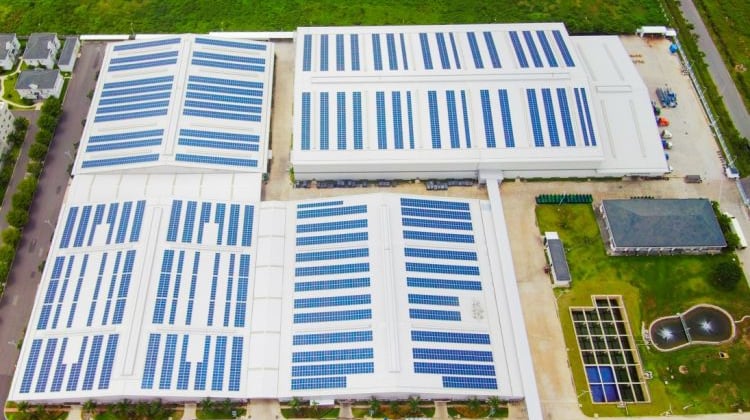
The Vietnamese government has announced that it will allow direct power purchase agreements (PPAs) between independent power producers and large electricity consumers.
In a statement, the Vietnamese government said there will be two ways to sell power to customers. First, the power can be sold via the national grid, which involves the purchase and sale of electricity via a term contract between an independent power producer (IPP) and a large electricity user or an authorised electricity retailer within a zonal or cluster model.
Try Premium for just $1
- Full premium access for the first month at only $1
- Converts to an annual rate after 30 days unless cancelled
- Cancel anytime during the trial period
Premium Benefits
- Expert industry analysis and interviews
- Digital access to PV Tech Power journal
- Exclusive event discounts
Or get the full Premium subscription right away
Or continue reading this article for free
Large electricity users or retailers within a zonal or cluster model can sign electricity trading contracts with IPPs to purchase all the electricity needed to meet their demands.
Moreover, IPPs can sign an electricity trading contract with consumers, selling power via a private connection line.
According to data from the US International Trade Administration, Vietnam’s total technical potential for solar is up to 1,646GW, consisting of 1,569GW ground potential and 77GW water potential, while the total scale potential for large-scale solar PV projects nationwide is approximately 386GW.
Recently, Singaporean state-owned energy company Sembcorp completed the acquisition of 245MW of renewables projects in Vietnam.
After the entire acquisition is completed, Sembcorp’s renewables capacity in Vietnam will reach 455MW, while the group’s gross renewables capacity will be 14.4GW. Sembcorp announced the acquisition in late 2023. The assets have long-term power purchase agreements (PPAs) contracted with state-owned enterprise Vietnam Electricity. The deals were valued at S$218 million (US$160.3 million).
Some solar manufacturers have also expanded their business in Vietnam. In May, Trina Solar expanded operations at its Vietnam solar wafer manufacturing facility. Since beginning operations in August 2023, Trina said it has more than doubled the workforce at the Thai Nguyen facility and expanded operations to produce solar cells and modules, as well as wafers. It is currently ramping up capacity to a total production of 6.5GW of 210mm monocrystalline wafers, 4GW solar cells and 5GW modules.
Aside from Trina Solar, Tokyo-headquartered solar manufacturer VSUN has commenced commercial production of its 4GW silicon wafer plant in Vietnam. Construction of the plant started last November, with the first n-type 182.2×182.2mm n-type silicon wafer starting production.






